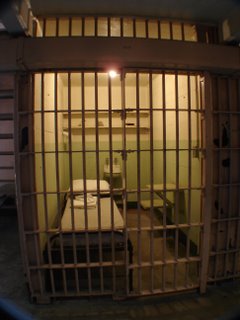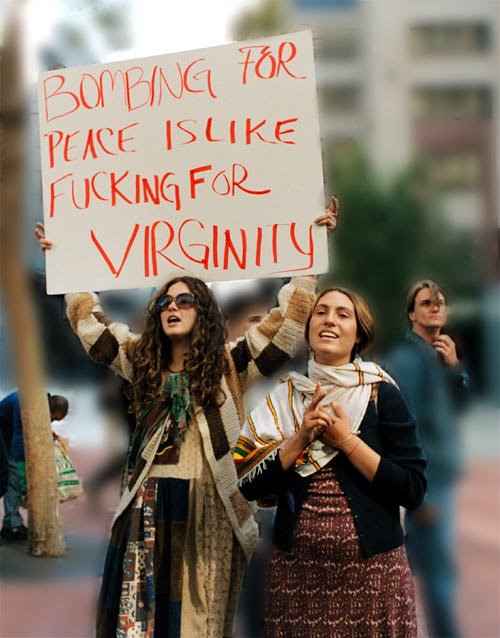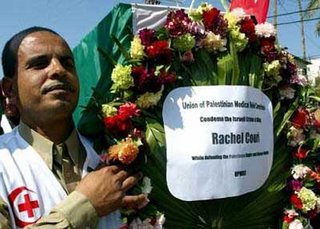Giant Prisons Of The World

Almost 100 years after the British arrogantly carved up the map of the world and 200 years since America provoked wars to justify its territorial expansion, the effects of the racial arrogance are starting to be felt at home. The most destructive and nearly impossible to correct product of the imperial domination by both powers is the modern concept of the nation-state. Here in America, the current debate over immigration "reform" highlights the contradictions that have been born of hundreds of years of imperialism.
Before there were nations, people had freedom to move. There was no such thing as a passport, border patrol or customs. Christopher Colon did not have to get visas from India and make sure his passport was current before setting sail to unknown lands. Jews on the run did not have to get permission to go to Palestine when fleeing from Christian European persecution in the late 1800's and early 1900's. After the inquisition, Jews and Muslims alike fled Spain and settled throughout North Africa.
There were, of course, cities, civilizations, tribalism and empire, but the person who wanted to move to a new place in search of opportunity only had himself to worry about. Would he have enough food, would he be able to defend himself against the bandits along the route, could he survive the weather changes throughout the seasons? My family, for example, racially comes from Eastern Europe, Turkey and North Africa, but made it to Egypt via the spice trade. Some merchants a few hundred years ago, left Albania, Turkey and parts of Tunisia, survived the bandits along the way and were in Egypt when the borders were drawn.
People moved to places that made sense; places where food could be cultivated; centers of civilization.
But at some point, the imperial powers decided it would be easier to control resources by drawing arbitrary lines on maps, naming the countries, giving them out as gifts to their friends and restricting movement across artifical borders. Take the Semitic World as a case in point. There was no such thing as Iraq, Jordan, Syria, Lebanon, Saudi Arabia, etc. The British made pacts with local warriors (the Al-Saud family who got Saudi Arabia were the bandits who used to rob the pilgrims on their way to Mecca - now they're robbing the oil) and handed out lands to people who agreed to betray the Ottoman sultans. There was no concern that the borders made sense.
The suffix "-stan" means "the land of". Kurdistan, thus, was what everyone in the Semitic World knew as the land of the Kurds. When the British drew the arbitrary lines, Kurdistan did not retain territorial continuity but, rather, Kurds arbitrarily became citizens of Iraq, Turkey and Syria. A people who had once ruled themselves were now divided by arbitrary borders, could not travel among Kurdish villages that were in different countries without first obtaining a passport and they became subject to the laws of people with whom they had little in common. The end result, of course, is the uprising and independence movement among the Kurds and the brutal repression of them by Iraq and Turkey.
The same is true of Africa. The Hutus and Tutsis were separate tribes, living independently, until the British created a country out of thin air and forced people of different tribes to live together and form a government that represented the cultures, history, etc. of the various tribes. And no one was allowed to leave without a passport and permission. So, if one day you were a Tutsi who traveled among your villages, the next day you were a Rwandan who was legally prohibited from crossing the border without a passport and permission. You were trapped in prison with a bunch of people you don't like or, at best, with whom you share little in common. Is there any wonder why there is seemingly no end to the conflicts that plague humanity?
While I could go on with endless examples of the tragedy that has been borne of Britain's arrogance around the world, it is time to return home. California and much of the American southwest used to be part of what is now called Mexico. That is not a disputable point.
In 1846, President Polk provoked a war with Mexico as part of his expansionist dream of America having only oceans on her eastern and western edges. The border with Texas was pushed south to the Rio Grande and New Mexico, Arizona and California ultimately became part of America. Spaniards, Mexicans and Native Americans were either forced southward, killed or found themselves resident of a foreign nation. A border was drawn and free movement between Mexico and America restricted.
As agribusiness expanded, the Mexican nation that imprisoned its people claimed the right to all land, declared it "private" property and sold it to big American agribusiness. Farmers who had survived off the land for centuries with a quiet dignity were forced to the cities in search of work. There, they found more big corporations paying pennies for wages, offering no better chances for survival. So here is the Mexican immigrant. He wants to support his family, put food on the table and enjoy life, but he is trapped in a nation-size prison. Torn by the desire to remain close to family, culture and all that is safe to him, he must decide whether the risks of the journey north is worth the possibility of making $1 per day. He decides that the possibility of working is worth it and sets off.
He and 11 million others just like him are now at the center of a debate over what to do with them. Because of the arbitrary notion of nation, citizenship and patriotism, they committed a crime by crossing an invisible line in the sand. 11 Million people, the majority of whom are willing to take any job America has to offer, are being criminalized for escaping from their destitute prisons. People who stand ready to work and to take the most unattractive, dangerous, back-breaking, low-paying thankless work are called criminals. With the multitudes of lazy, good-for-nothing losers with whom we share a prison, we are propagandized to criminalize those who want nothing more than to work and earn a decent wage. With that heinous, unhuman proposition, I can never agree.
Before America was a nation, those people were called pilgrims. They were called adventurers when they boarded ships in Ireland, Scotland, Italy, England, etc. and left to a new land in search of something better. There were no invisible lines. No customs agents. No b.s. about following the rules. We laud them in our history books as heroes with endless courage, but the descendants of those who escaped now want to close the gates on those who would follow in their footsteps.
The nation is an artificial notion. It demands that I share an affinity with another human being simply because we hold a passport from the same nation and see all others as enemies. Patriotism demands that I revere the flag that symbolizes my prison and see all other flags as unworthy. My nation demands that I view people who want to work as enemies of the state while some illiterate redneck who goes to Iraq for the thrill of killing brown people is supposed to get my undying support. Sorry, but this does not work for me.
I will always have immensely more respect for those who have the guts to risk life and limb to feed their families than for the lazy ass down the street who collects unemployment. The gardener who mows my lawn wakes up every Monday morning without fail while some yuppie shit is too hung over to get out of bed. My cleaning lady shows up with two of her sisters to earn relatively little, while some whiney chick is on disability because she has carpal tunnel syndrome. And that same whiney bitch, from the luxury of her welfare-subsidized couch, proclaims the criminality of the illegals.
We, in America, are fortunate to live in a minimum security prison. Travel to anywhere in the world is available to anyone with the means to do it. But could you imagine what it would be like if that were not the case? What happens if the world powers change tomorrow and someone decides to carve up America into nation-states the way the British and Americans did with the rest of the world? Although your family is across the border in Alabama, you are now a citizen of Georgia and cannot go visit them without a passport. The gaming industry in Nevada slows down and you need work, but you can't get a work visa for California.
How long would it be before you would flout the rules and find your way out of prison? Would that make you a criminal?
A quote from a MSN article today sums up my point exactly -
"Illegal immigrants in the community know their presence causes tension, but say they have little choice. 'I know the white people are thinking it’s wrong because there are too many people and it looks bad,' said Miguel Angel Vasquez, a 32-year-old illegal immigrant who has been in the country for 11 years. 'But we need a job.'
























